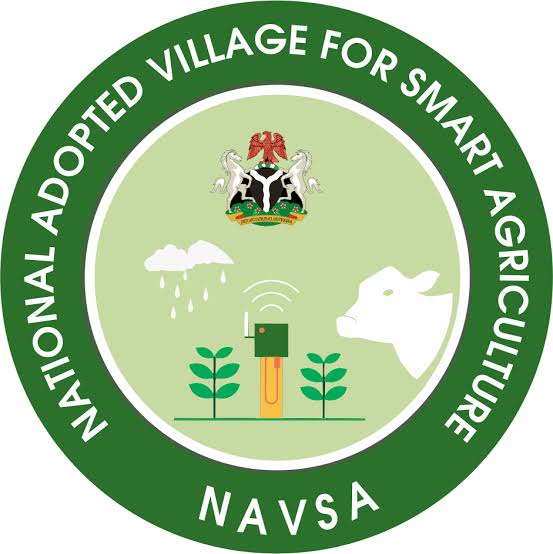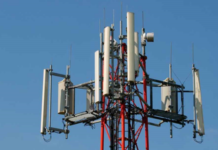IoT, Smart Agriculture Should be made National Program in Nigeria – NCS
TECH DIGEST – Internet of Things (IoT) and smart agriculture should immediately be made a national program in Nigeria and which should be backed up with appropriate policies, the Nigeria Computer Society (NCS), has recommended to stakeholders in the agricultural sector.
NCS believes that IoT and Smart Agriculture possess the potential to address many of the nation’s security challenges, as contained in a communiqué issued at the end of its Webinar titled: “Building Capacities for Smart Agriculture in Nigeria,” and it took place on the 17th of February, 2021.
Three papers were presented by experts during the Plenary Session 1 while a 12-man panellist did justice to the theme during the discussion forum (Plenary Session 2).
The communiqué signed by the Executive Secretary of NCS, Engineer Iyiola Ayoola, was compiled from some of the questions, proposals and assertions made during the webinar, TechEconomy.ng can report.
The meeting agreed that implementing and adopting smart agriculture will improve productivity and profitability in Low- and Medium-Income Countries (LMIC).
“The potentials are huge as seen from the success stories from developed economies, hence there is need for more conceited efforts towards achieving this feat.
“The meeting posited that IoT and smart agriculture should immediately be made a national program in Nigeria and which should be backed up with appropriate policies especially because of its potential to address many of the nation’s security challenges”, NCS said.
The Meeting recalls that smart agriculture requires heavy initial investments, recurring maintenance cost, strong Internet connectivity, as well as high cost of technology devices such as precision sensors, drones, gateways, bots, etc.
However, participants expressed concerns about how these barriers to successful implementation and adoption of smart agriculture can be resolved and call on the Government to facilitate the integration of IoT and smart agriculture in Nigeria particularly due to the high number of small holder farmers in the Country.
At the meeting, it was agreed that one of the factors for the successful implementation cases in India is the enhanced mobile network connectivity with reduced cost.
The Federal Ministry of Communication and Digital Economy (FMCDE) was tasked to immediately ensure that Nigerians have regular access to cheap, fast, and strong Internet connection as part of the capacities for smart agriculture in Nigeria.
NIGCOMSAT posits that with the satellite all the smart agriculture technologies can be implemented even in the rural areas.
“NIGCOMSAT and its channel partners can provide broadband connectivity through VSATs and TV White Spaces (TVWS) for individual farmers or farmers cooperatives in rural areas.
“Most farmers are not literate and may not have enough financial resources to adopt IoT and smart agriculture.
“The Government should implement policies that will encourage, motivate and mobilize small and medium holder farmers to adopt the practice of smart agriculture”, Ayoola said.
Meanwhile, the Communiqué recognizes the need to for a paradigm shift in the way knowledge is handled as far as agriculture is concerned.
“There is a huge gap between the farmers, commodity brokers, academia, and other stakeholders in the agro industry, etc. We must bridge this gap and leverage on the knowledge technology and entrepreneurship in Agriculture?”
The meeting was particularly concerned with the literacy level of farmers. There is need for literacy education that is targeted at the farmers to enable them to key into the smart agriculture scheme.
Read Also:
“Extension and rural agriculture development officers should be retrained with appropriate skills and tools to disseminate smart agriculture-based knowledge to farmers.
“The meeting highlights the need to embrace hydroponics farming to grow animal feeds which will create decent jobs, improve the economy and food security as well as tackle the national security menace created by the farmers/herders’ clashes” , the communiqué reads.
The Nigerian Agricultural Insurance Corporation (NAIC), informed the meeting of the recent purchase of drones which are ready for deployment for aerial mapping and vegetation survey of farmlands. The agencies look forward to collaborators that are interested in research or projects involving drones.
National Information Technology Development Agency (NITDA) in its move to turn the agriculture sector around, came up with the National Adopted Village for Smart Agriculture (NAVSA) programme to provide farmers with technology to showcase their farm produce in the digital world market, more effort is required in this direction.
“There is need for a Government formulated policy on data exchanges and ownership since smart agriculture involves a lot of data collection”.
The meeting was concerned with the arrangement in place as collaboration between industries and Universities towards taking agriculture to greater heights? Hence, Universities of Agricultures in Nigeria were challenged to assist the Nation by taking the lead and setting the pace for adoption of smart agriculture in Nigeria especially with regards to genetics and improved crop seedlings.
The meeting was also concerned with the low number of applicants into undergraduate agricultural programmes. The Universities, Governments and other stakeholders are to device frameworks and incentives that will encourage the youths and women to engage in agriculture, especially smart agriculture.
The Ivory Towers were also encouraged to move from theory to applied/practical/entrepreneurial based teaching models especially in agriculture because the present Universities curriculum does not give room for smart farming.
Individuals, Organizations and Government agencies such as the Federal Ministry of Communication and Digital Economy (FMCDE), Federal Ministry of Agriculture (FMOA), NITDA, NAIC, NIGCOMSAT, Federal University of Agriculture Abeokuta, Landmark University Omu-Aran, IoT Africa Network Ltd and Secure Agric Ltd, that were part of this webinar, should collaborate and initiate projects on smart agriculture should could be used as pilot schemes.
The meeting recommended that relevant stakeholders within the smart agriculture industry should adopt IoT based technologies like Sigfox, Agrikoin, etc. and collaborate with the indigenous Nigerian Companies championing them.
The Communiqué further calls on organizations like Microsoft and others with products in the IoT, Smart Agriculture and Data analytics domain for flexible price regime that are region specific to support countries like Nigeria with several smaller holder farmers.
On the international level, the Communiqué: calls on developed Countries in Europe, US, and Australia, etc to partner with Nigeria for industrial mentorship programs for technology and knowledge transfer.
The webinar was aimed at providing essential technical skills and techniques required for the adoption of smart agriculture in Nigeria.
It provided a comprehensive examination of the processes of precision agriculture, from the preparation stage through to the farming and post farming stages with the following specific topics:
Principles and practices of precision agriculture;
IoT-based Smart Agriculture for Nation’s Economic Advancement;
End-to-end technology-based agricultural production management;
Spectral sensing of crops from space air and ground;
Machine learning in Agriculture: Techniques and Applications.




















